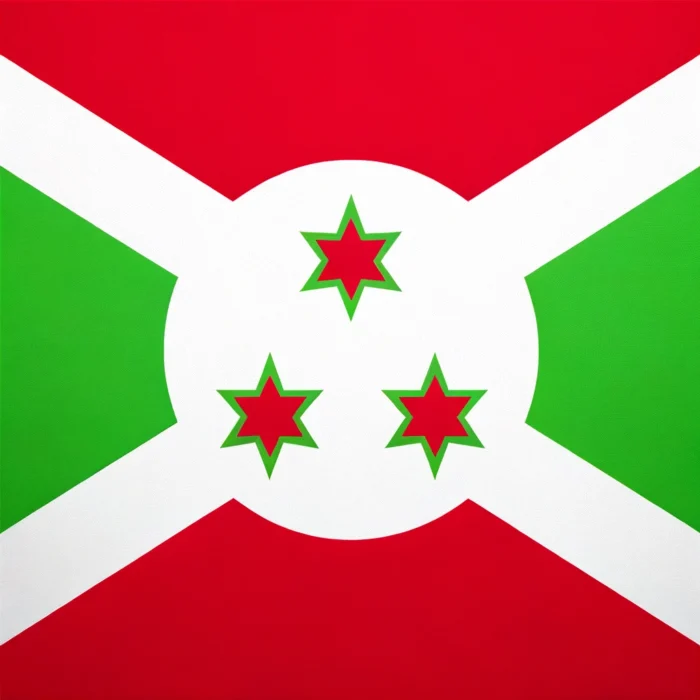
Nestled in East Africa’s Great Rift Valley, Burundi is a small, landlocked country with a diverse landscape of hills, lakes, and forests. The capital city is Gitega, while Bujumbura remains the economic hub.
History: Burundi gained independence from Belgium in 1962. Despite facing periods of conflict, the nation continues to work towards peace and national unity.
Economy: The economy is primarily agricultural, with coffee and tea as major exports. Efforts are being made to diversify economic activities and improve infrastructure to foster growth.
Technology: Investment in ICT is growing, with initiatives to expand mobile connectivity and digital literacy, aiming to integrate more citizens into the digital economy.
Culture & Society: Burundi boasts a rich cultural heritage, with traditional drumming, dance, and storytelling playing central roles in society. Kirundi is the national language, alongside French and English.
Nature: The country’s natural beauty includes Lake Tanganyika, one of the world’s deepest lakes, and Kibira National Park, a haven for chimpanzees and diverse bird species.
Burundi is a nation of vibrant traditions and natural splendor, striving towards a harmonious and prosperous future.